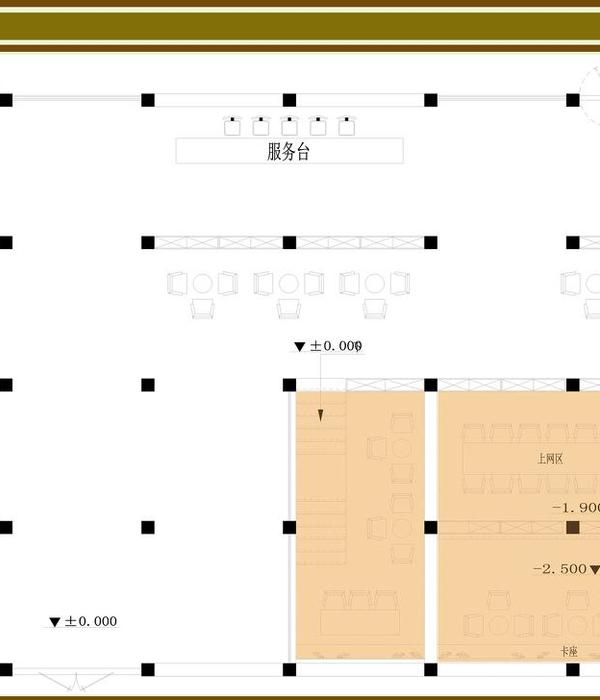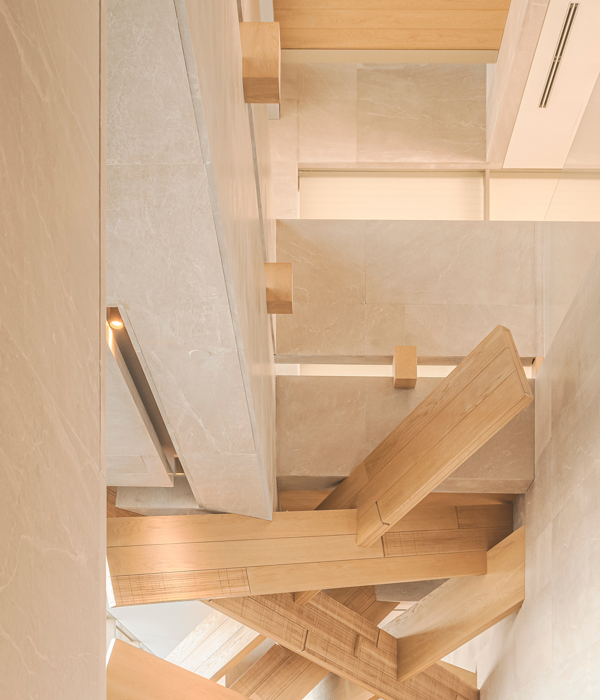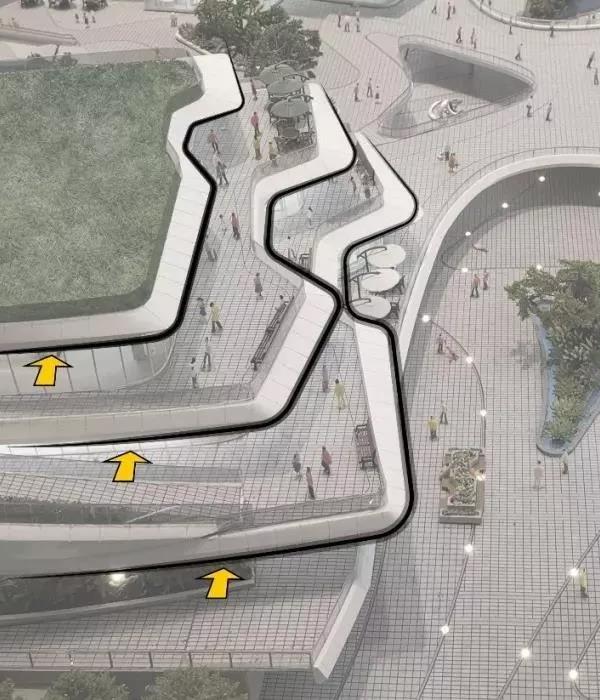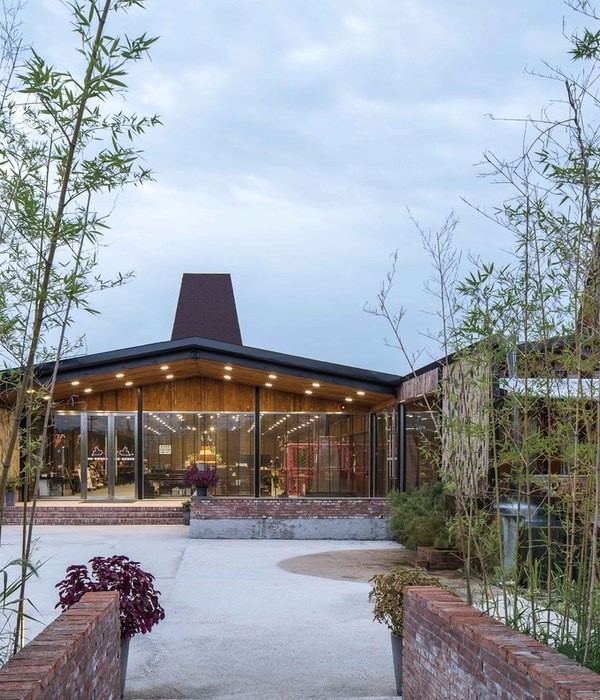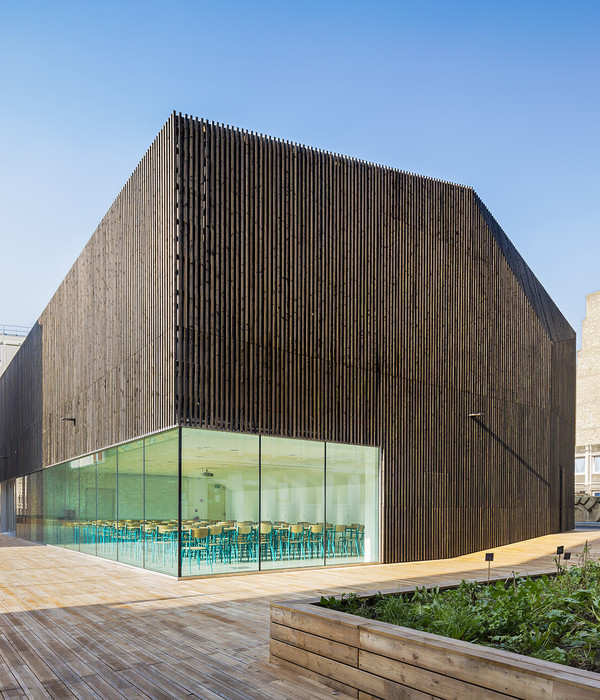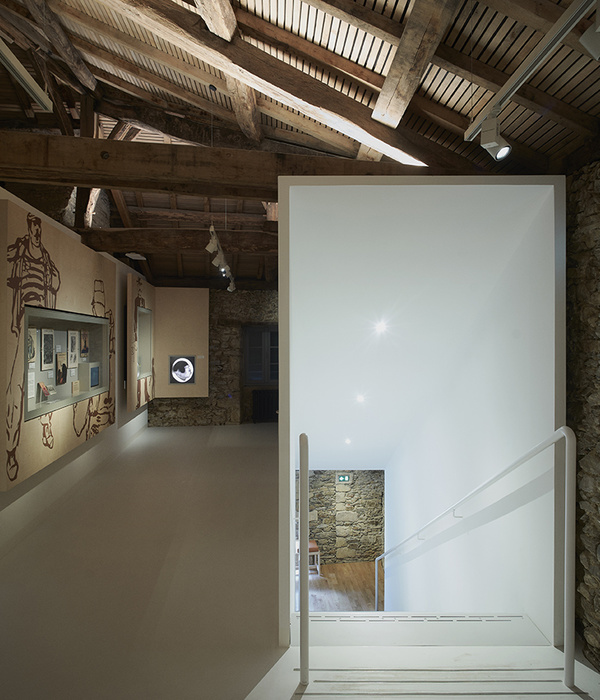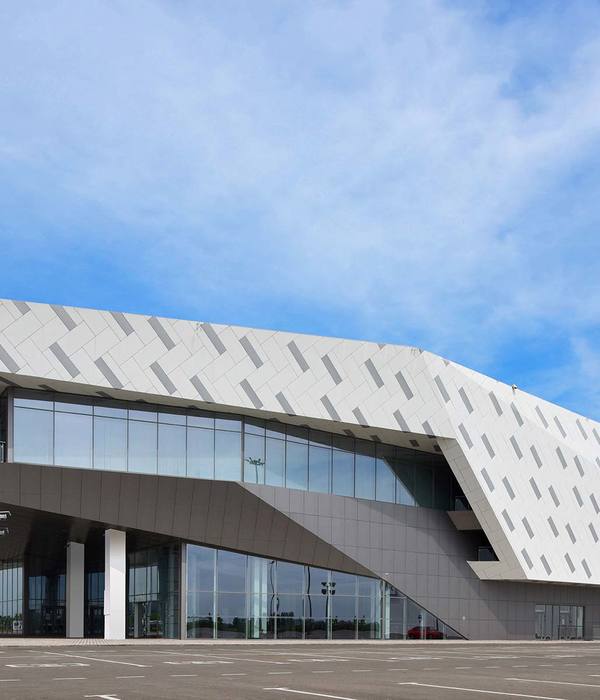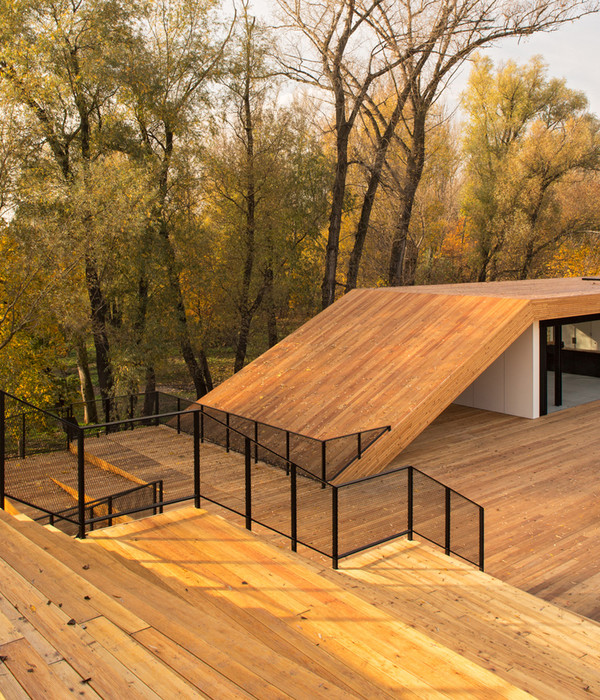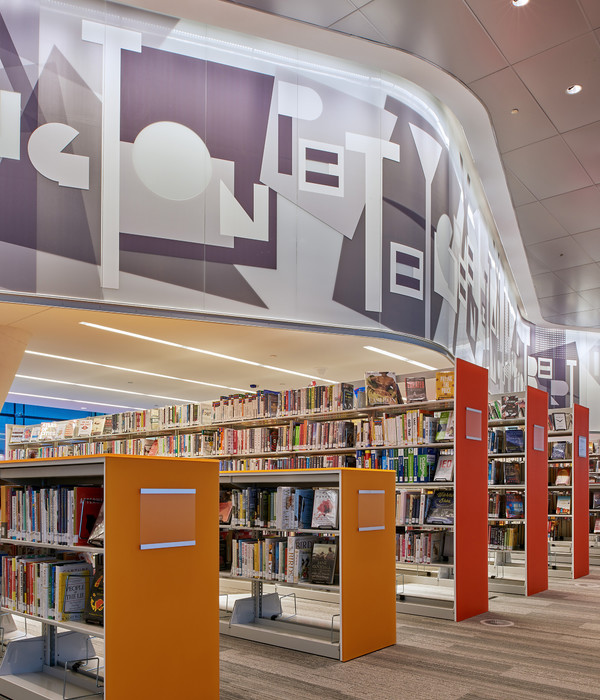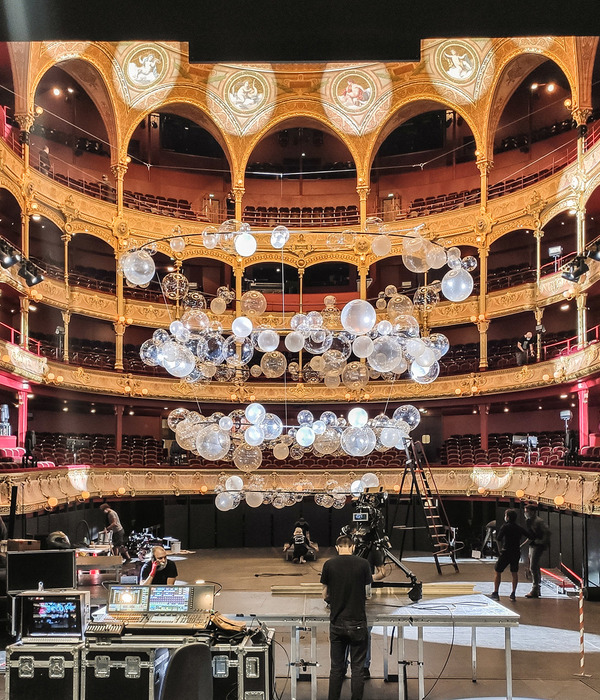The exhibition design for Uncanny Values is based on the spatial, material and atmospheric layering of ephemeral conditions. Through the extensive use of translucent and curved scrims, the display presents a radical departure from the traditional white box gallery showcase. Visitors moving through the layers become part of a fluid non- linear narrative. The transparency of the curtains allows for a dynamic, if uncanny space, where shadow-like figures pass by on the borders of perception.
In contrast to the floating, non-cartesian spaces created for the exhibition, the plinths, benches, and platforms are firmly rooted in the ground and highlighted through contrasting colors. The lighting concept is diffuse, adding to the overall abstract atmosphere. Natural light is allowed in through a filter, still allowing for a perception of the outside world. While creating an overall atmosphere, the system can adapt to a range of conditions and artist requirements. The work of Trevor Paglen, for instance, requires completely enclosed and darkened spaces. The layering, in this case, intensifies, creating an enclosed area narrowly focused on a particular kind of work.
At times the scrims become carriers of artwork and information themselves. Operating as projection surfaces, and holding a portion of the wall text, their subtle presence is intensified in these moments. Just like a virtual layer, they can selectively be activated for various content streams. Mediating between physical artifacts, projections, and digital content, the exhibition design is taking simple elements such as fabric screens and adapting them to our increasingly digitized world.
{{item.text_origin}}

